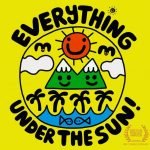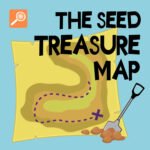
CHAMELEONS OF THE SEA: How Octopuses Can Change Colour?
Leave a reviewIt’s time for another trip around the solar system on the BIGGER and BETTER Science Weekly!
© Fun Kids | 00:28:21
|Episode: 369 |
Full episode description
 Episode One: Amazing Robots, Mind-Blowing Space Facts and Martian Mysteries!
Episode One: Amazing Robots, Mind-Blowing Space Facts and Martian Mysteries!
This is an Episodic show. You can listen to it in any order, but episode one is always a great place to start.Full Episode description
It’s time for another trip around the solar system on the BIGGER and BETTER Science Weekly!
This episode of the Fun Kids Science Weekly we continue our bigger and better podcast where we answer YOUR questions, have scientists battle it out for which science is the best & learn all about octopuses changing colour in Anglesey in Wales.
Dan starts with the latest science news, where we learn about a faraway planet called HD198733B that stinks of rotten eggs, why some eagles have skipped breeding season to look after their 2 year old chick and Ciara Taylor from the Marine Conservation Society tells us about an octopus spotted changing colour in Wales.
Then we delve into your questions where Dan answers Alana’s question on why we don’t get dizzy by the world spinning & Chris Lewis from the University of Copenhagen answers Lewis’ question on why animals hibernate?
Dangerous Dan continues and we learn all about the fearsome Allosaurus
The Battle of the Sciences continues where Dan chats to Grace Carroll about why Animal Welfare Science is the best kind of science?
What do we learn about?
– A planet that stinks of rotten eggs
– Why some eagles are skipping breeding season?
– Octopuses changing colour in Anglesey, Wales
– Why animals hibernate?
– Is Animal Welfare Science the best type of science?
All on this week’s episode of Science Weekly!
Join Fun Kids Podcasts+: https://funkidslive.com/plus
See omnystudio.com/listener for privacy information.
© Fun Kidsbop| Status: Active, 81 episodes | Kind: Episodic | Episode URL
The content, Artwork and advertising within this podcast is not owned or affiliated with Sound Carrot and remain the property of their respective owners.








